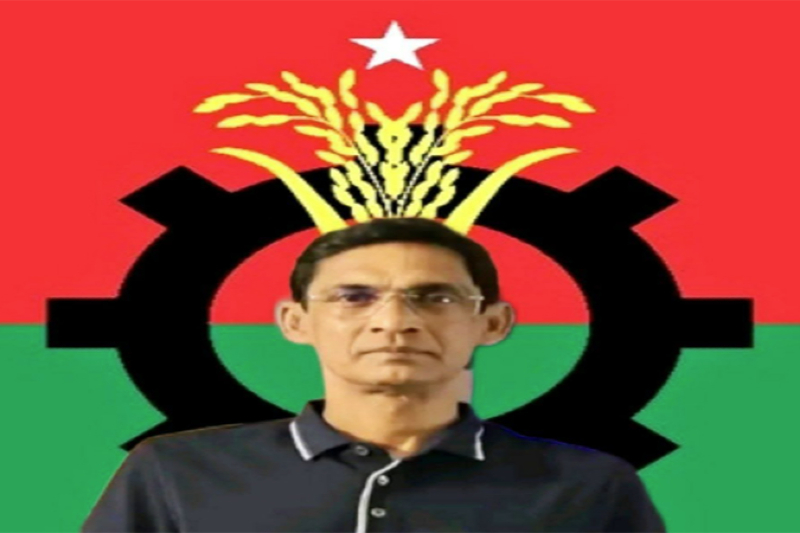
In the often stormy landscape of Bangladeshi politics, where wealth and influence frequently overshadow principle, a few leaders distinguish themselves by integrity and steadfastness. Among them is Mirza Walid Hossain Shipon, a veteran activist whose journey from the turbulent student movements of the 1980s to his current standing as an organizer, economist, and grassroots leader has made him one of the most respected figures in Magura-1.
As the 13th National Parliament elections approach, many in the constituency view him as a strong and trustworthy candidate.
Shipon’s entry into politics dates back to 1984, during the authoritarian rule of Hussain Muhammad Ershad. Inspired by the vision of President Ziaur Rahman and the leadership of Begum Khaleda Zia, he joined the Jatiyatabadi Chhatra Dal (JCD). That same year, he was elected Senior Vice President of the Rajshahi New Government Degree College unit and later became Publicity Secretary of the district committee.
His rise was driven not by patronage, but by his ability to mobilize young people eager for democratic change.
At the Islamic University in Kushtia, Shipon took his activism further, helping to found the JCD unit in 1986 and serving as its first General Secretary. His commitment came with heavy sacrifices.
In 1987, he and 20 others were expelled for staging protests, building the Shaheed Minar on campus, and strengthening resistance against military rule. What was intended to silence him instead bolstered his image as a fearless leader willing to risk personal setbacks for the greater cause of democracy.
When the Ershad regime collapsed in 1990, Shipon’s dedication was vindicated. The expulsion orders were lifted, and he was re-elected President of the Islamic University JCD in both 1991 and 1994—an uncommon achievement that testified to his unifying leadership among students.
Over the years, he moved beyond campus politics and into the national stage, holding influential posts in BNP’s associate organizations. These included Joint Secretary of JCD, member of Jubo Dal, and International Affairs Secretary of Swechchhasebak Dal.
In these roles, Shipon built bridges with Bangladeshi expatriates and contributed to expanding BNP’s visibility in international forums.
Outside party structures, Shipon has remained a voice for intellectual and policy-driven politics. As President of the Islamic University Alumni Association and the Bangladesh Jubo Arthropod Forum, he has championed academic exchange, research, and constructive debate. For him, politics must aim at sustainable solutions rather than short-term slogans.
Colleagues often describe Shipon as honest, principled, and uncompromising in his stance against corruption.
In a political climate where financial clout often overshadows moral standing, he has earned the rare reputation of a “clean leader.” Locals in Magura recall his accessibility and his rejection of transactional politics, seeing him instead as someone rooted in their struggles.
With frustration mounting over entrenched family dominance and the lack of accountability in Magura-1, ordinary people—from farmers grappling with rising costs to unemployed youth and small traders—are voicing the need for alternative leadership.
Many point to Shipon as that alternative: a devoted follower of Zia’s ideals, loyal to Khaleda Zia and Tarique Rahman, and a leader who blends grassroots activism with economic insight.
Bangladesh today faces economic hardship, inflation, and political polarization. Against this backdrop, the demand for principled leadership is rising. Shipon’s supporters argue that his consistency—whether resisting dictatorship, opposing corruption, or standing up for democratic rights—sets him apart from others.
His story is not just about personal achievement but about a generation of young activists who risked expulsion, arrest, and persecution to restore democracy in Bangladesh. From campus protests in the 1980s to organizational leadership in the 2000s, Shipon’s political journey reflects resilience and conviction.
As Magura prepares for the upcoming parliamentary contest, attention will inevitably fall on him. Whether or not he secures a seat in the 13th National Parliament, Mirza Walid Hossain Shipon has already earned recognition as a principled figure in Bangladesh’s democratic history. For many in Magura, the choice is clear: change is overdue, and they believe Shipon is the one who can deliver it.



